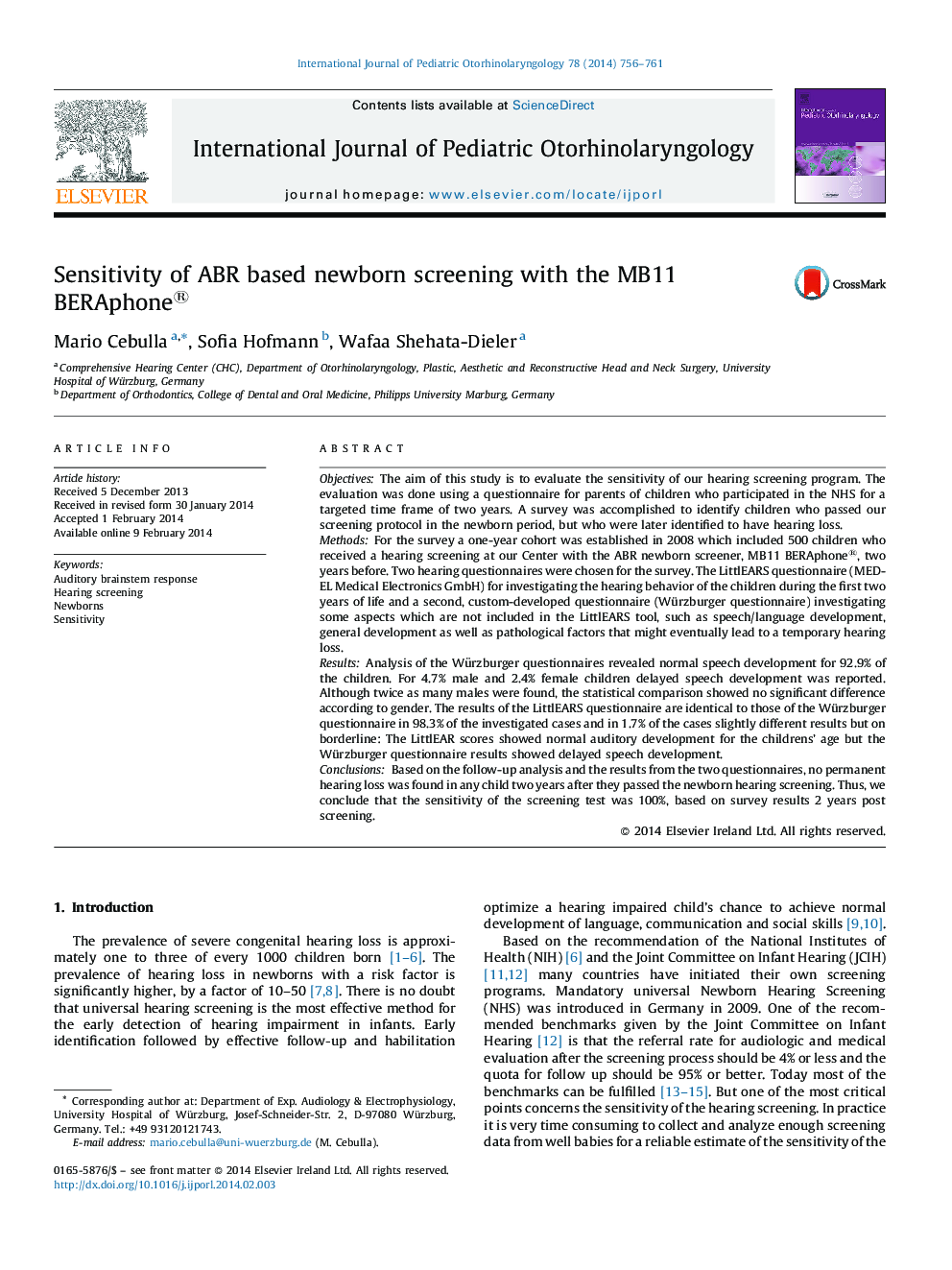| Article ID | Journal | Published Year | Pages | File Type |
|---|---|---|---|---|
| 4111997 | International Journal of Pediatric Otorhinolaryngology | 2014 | 6 Pages |
ObjectivesThe aim of this study is to evaluate the sensitivity of our hearing screening program. The evaluation was done using a questionnaire for parents of children who participated in the NHS for a targeted time frame of two years. A survey was accomplished to identify children who passed our screening protocol in the newborn period, but who were later identified to have hearing loss.MethodsFor the survey a one-year cohort was established in 2008 which included 500 children who received a hearing screening at our Center with the ABR newborn screener, MB11 BERAphone®, two years before. Two hearing questionnaires were chosen for the survey. The LittlEARS questionnaire (MED-EL Medical Electronics GmbH) for investigating the hearing behavior of the children during the first two years of life and a second, custom-developed questionnaire (Würzburger questionnaire) investigating some aspects which are not included in the LittlEARS tool, such as speech/language development, general development as well as pathological factors that might eventually lead to a temporary hearing loss.ResultsAnalysis of the Würzburger questionnaires revealed normal speech development for 92.9% of the children. For 4.7% male and 2.4% female children delayed speech development was reported. Although twice as many males were found, the statistical comparison showed no significant difference according to gender. The results of the LittlEARS questionnaire are identical to those of the Würzburger questionnaire in 98.3% of the investigated cases and in 1.7% of the cases slightly different results but on borderline: The LittlEAR scores showed normal auditory development for the childrens’ age but the Würzburger questionnaire results showed delayed speech development.ConclusionsBased on the follow-up analysis and the results from the two questionnaires, no permanent hearing loss was found in any child two years after they passed the newborn hearing screening. Thus, we conclude that the sensitivity of the screening test was 100%, based on survey results 2 years post screening.
